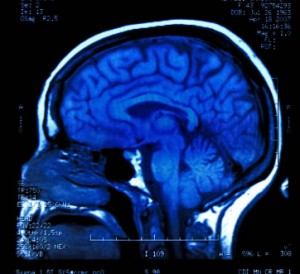Published: October 4, 2011
A new study on emotion recognition has shown that people with frontotemporal dementia are more likely to lose the ability to recognise negative emotions, such as anger, fear and disgust, than positive emotions such as happiness.
“All patients continue to recognise happiness, at least in the initial stages of the disease, even when recognition of other emotions is heavily impaired,” says Dr Olivier Piguet, one of the study’s authors. “There is something about a happy face that is different from the way other emotions are expressed.”

© istockphoto
Frontotemporal dementia(FTD) is one of the most common types of dementia in younger adults. The age of onset of FTD is typically in the 50s or 60s but can be as young as 30.
Along with various other symptoms affecting behaviour and language, all people with FTD experience difficulty in recognising emotions (facial expressions).
Up until now, however, it was not known whether the three subtypes of FTD (semantic dementia, progressive non-fluent aphasia and behavioural-variant FTD) have the same emotion-recognition deficits, and whether certain techniques could help overcome these deficits. [continue reading…]
Published: September 30, 2011
 People with dementia can still make decisions in their everyday lives and with support from partners can continue to do so as their condition advances. This is one of the preliminary findings of a two-year research project funded by the Economic and Social Research Council (ESRC) into how married couples living with dementia make decisions on a daily basis.
People with dementia can still make decisions in their everyday lives and with support from partners can continue to do so as their condition advances. This is one of the preliminary findings of a two-year research project funded by the Economic and Social Research Council (ESRC) into how married couples living with dementia make decisions on a daily basis.
Dr Geraldine Boyle and Dr Katherine Ludwin from Bradford University along with Dr Lorna Warren from the University of Sheffield research relates to people with early stage dementia to those with more advanced dementia. They have been spending time at home with the couples, interviewing each partner and observing them as they go about their daily routines.
Dr Boyle comments: “It’s important for people with dementia to be supported to allow them to make decisions where they’re still able to. Having dementia doesn’t mean you automatically lose your decision-making ability – this needs to be considered on a decision-by-decision basis. Professionals need to facilitate the involvement of people with dementia in decision-making as much as possible.”
Key preliminary findings include:
- Patterns of decision-making are influenced by the couple’s relationship before dementia. The partner who always took the lead will often continue to do this however in most cases the partner without dementia will eventually take over this role.
- Gender has a crucial impact on decision-making. Men with dementia are more likely to continue to take the lead if they have always done so.
- People with dementia still like to be involved in decision-making, but may look to their spouses for help with this process.
- The spouses of people with dementia try to support them to make decisions. For example, the partner with dementia may still pay at the till if the couple do the shopping together.
- Spouses may make decisions at times when their partners can still make these decisions. This can be down to factors such as time pressures and a desire to reduce the burden on their partners.
- However, complex decisions such as whether to attend a day care centre can cause anxiety and these have to be negotiated and sensitively handled.
- People with more advanced dementia can still communicate their likes or dislikes, through facial expressions and behaviour for example.
The study has also found that people with dementia may need encouragement to make decisions as well as the opportunity to make these decisions for themselves.
Dr Boyle concludes: “Because dementia is still quite a stigmatised illness, those living with the condition are sensitive to other people’s reactions to them. Their confidence can be quite fragile. It is important that they feel good about themselves and know that their views still matter.”
Source: Economic and Social Research Council
The discovery of a link between genetics, age and late-onset dementia could help men identify their risk of developing the disorder later in life.
In research published in the August edition of the journal Neurology, Monash researchers Professor Kim Cornish and Dr Darren Hocking led a team which examined impulsivity, attention and working memory skills of men aged 18 to 69 years, who were all carriers.
Men who are carriers of the FMR1 (Fragile X Mental Retardation 1) gene may be at high risk of developing severe dementia as they age, despite having no obvious symptoms earlier in life.
Fragile X Syndrome is the leading inherited cause of intellectual disability and the most common known genetic cause of autism.
The FMR1 gene occurs in two stages: as a small-medium expansion (carriers) and as a large expansion. Those with the large expansion will have Fragile X Syndrome (FXS) and experience the full effects.
Approximately one in 250 women and one in 800 men will be carriers of the FMR1 gene. For many years, those who carried the gene were assumed to be unaffected by any of the challenges faced by those with FXS.
The men were tested for their ability to phase out irrelevant information as well as actively store short-term information. These core brain functions decline with late-stage dementia.
The research found that carriers of the gene who were at the upper end of the medium expansion were more likely to have problems with inhibition and remembering materials, demonstrating cognitive dementia symptoms, whereas those who had expansions just within the medium range appeared risk-free. [continue reading…]
Published: February 14, 2011
 Seniors with hearing loss are significantly more likely to develop dementia over time than those who retain their hearing, a study by Johns Hopkins and National Institute on Aging researchers suggests. The findings, the researchers say, could lead to new ways to combat dementia, a condition that affects millions of people worldwide and carries heavy societal burdens.
Seniors with hearing loss are significantly more likely to develop dementia over time than those who retain their hearing, a study by Johns Hopkins and National Institute on Aging researchers suggests. The findings, the researchers say, could lead to new ways to combat dementia, a condition that affects millions of people worldwide and carries heavy societal burdens.
Although the reason for the link between the two conditions is unknown, the investigators suggest that a common pathology may underlie both or that the strain of decoding sounds over the years may overwhelm the brains of people with hearing loss, leaving them more vulnerable to dementia. They also speculate that hearing loss could lead to dementia by making individuals more socially isolated, a known risk factor for dementia and other cognitive disorders. [continue reading…]



